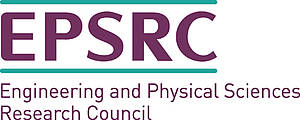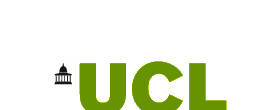The 16th CREST Open Workshop
Provenance and Product Lines
Date: Monday 28 November 2011
Venue: Engineering Front Executive Suite, Roberts Building, UCL (Directions, or 'C5' on the map here, or Find it on Google maps.)
Software Product Line development is very popular in various application domains, due to the need for having product variants. When Product Lines are created from existing code bases, it is important to identify and mine commonalities and variabilities, which can be supported by trace retrieval, feature location, differencing, and clone detection. Similar problems exist in the management of a product line - different product lines still share code or may contain code from other projects. Thus the provenance of the code in the product line has to be established and managed, not only for development problems or quality assurance, but also for related problems like licensing issues.
This workshop will draw together experts from product line development, code provenance, clone detection, trace retrieval, and software quality to discuss the connections and challenges.
Programme: (Downloadable programme in PDF)
*Talks will be 20 minutes allowing 15 minutes for discussion and questions afterwards.*
09:00 Arrival, Coffee and Pastries
9:15 Welcome and Introductions (Slides, Video)
Jens Krinke, CREST Centre, SSE Group, Department of Computer Science, UCL, UK
9:30 Locating Software Product Line Features
Julia Rubin, IBM Research, Haifa Research Lab, Israel
10:05 The Role of Feature Modeling in Software Product Line Engineering (Slides, Video)
Hassan Gomaa, Department of Computer Science, George Mason University, USA
10:40 Refreshments
11:10 An Overview of Techniques for Detecting Software Variability Concepts in Source Code (Slides, Video)
Angela Lozano Rodriguez, Département d'Ingénierie Informatique, Université catholique de Louvain, Belgium
11:45 Analyzing similarity of multiple cloned software systems (Slides, Video)
Slawomir Duszynski, Fraunhofer Institute for Experimental Software Engineering IESE, Kaiserslautern, Germany
12:20 Granularity and Code Cloning in Software Product Lines (Slides, Video)
Sandro Schulze, Department of Computer Science, Otto-von-Guericke-University Magdeburg, Germany
13:00 Sandwich lunch at the venue
14:00 Squinting at the data: Investigating software artifact provenance using KISS techniques (Slides, Video)
Michael W. Godfrey, University of Waterloo, Canada (Visiting Distinguished Scientist at CWI-Amsterdam until July 2012)
14:35 Enhancing Traceability Recovery using Smoothing Filters (Slides, Video)
Massimiliano Di Penta, Department of Engineering, University of Sannio, Italy
15:10 Using DNA ?ngerprinting techniques for the discovery of software code clones (Slides, Video)
Thomas Shippey, University of Hertfordshire, UK
15:45 Refreshments
16:15 Extract Class Refactoring: a Novel Approach (Slides, Video)
Rocco Oliveto, Faculty of Science of the University of Molise, Italy
16:50 Design Quality Assessment in Practice (Slides, Video)
Radu Marinescu, Department of Computer Science and Engineering, "Politehnica" University of Timisoara, Romania
17:25 Wrap up
18:00 Close
Photos:












This workshop is supported by the following sponsors:


Registered Attendees: (The registration is closed.)
- David Bowes, University of Hertfordshire, UK
- Julian Brook, SQS Group Limited, UK
- Massimiliano Di Penta, Department of Engineering, University of Sannio, Italy
- Slawomir Duszynski, Fraunhofer Institute for Experimental Software Engineering IESE, Kaiserslautern, Germany
- Paolo Falcarin, School of Architecture, Computing and Engineering (ACE), University of East London, UK
- Michael W. Godfrey, University of Waterloo, Canada
- Nicolas Gold, CREST Centre, SSE Group, Department of Computer Science, UCL, UK
- Hassan Gomaa, Department of Computer Science, George Mason University, USA
- Mark Harman, CREST Centre, SSE Group, Department of Computer Science, UCL, UK
- Robert M. Hierons, School of Information Systems, Computing, and Mathematics, Brunel University, UK
- Syed Islam, CREST Centre, SSE Group, Department of Computer Science, UCL, UK
- Derek Jones, Knowledge Software, UK
- Yue Jia, CREST Centre, SSE Group, Department of Computer Science, UCL, UK
- Jens Krinke, CREST Centre, SSE Group, Department of Computer Science, UCL, UK
- Bill Langdon, CREST Centre, SSE group, Department of Computer Science, UCL, UK
- Angela Lozano Rodriguez, Département d'Ingénierie Informatique, Université catholique de Louvain, Belgium
- Cristina Marinescu, "Politehnica" University of Timisoara, Romania
- Radu Marinescu, Department of Computer Science and Engineering, "Politehnica" University of Timisoara, Romania
- Matthew Moroz, Department of Computer Science, UCL, UK
- Saya Mutanova, Department of Computer Science, UCL, UK
- Wenhao Nie, The Advanced Centre for Biochemical Engineering, Department of Biochemical Engineering, UCL, UK
- Ingrid Oliveira de Nunes, PUC-Rio and King’s College London, UK
- Rocco Oliveto, Faculty of Science of the University of Molise, Italy
- Jochen Quante, Robert Bosch GmbH, Germany
- Jian Ren, CREST Centre, SSE Group, Department of Computer Science, UCL, UK
- Julia Rubin, IBM Research, Haifa Research Lab, Israel
- Sandro Schulze, Department of Computer Science, Otto-von-Guericke-University Magdeburg, Germany
- Thomas Shippey, University of Hertfordshire, UK
- Francis Thom, Software Centre of Excellence, Rolls-Royce PLC, UK
- Varsha Veerappa, Department of Computer Science, UCL, UK
